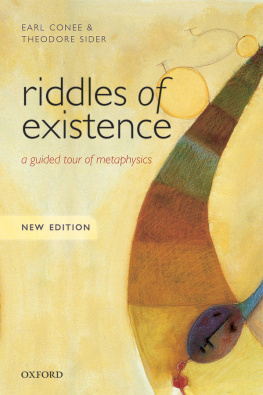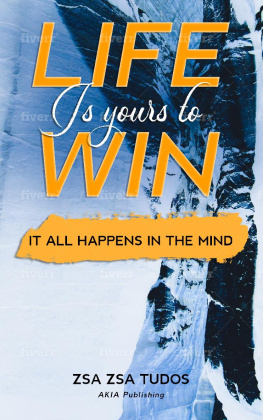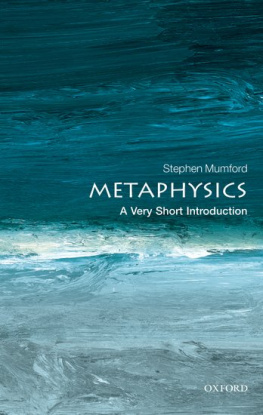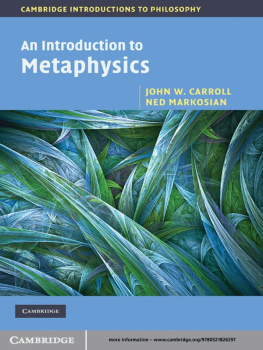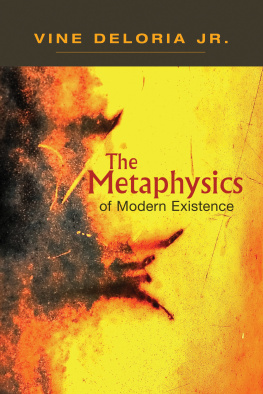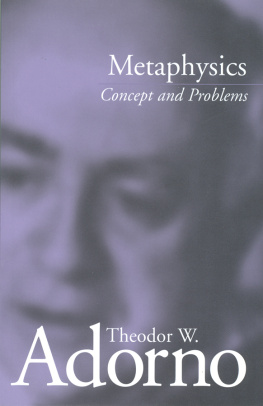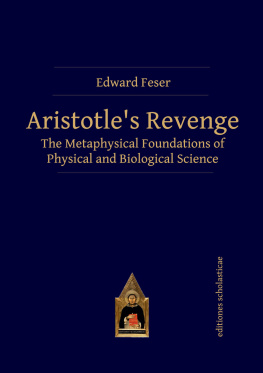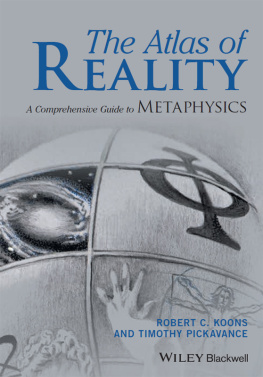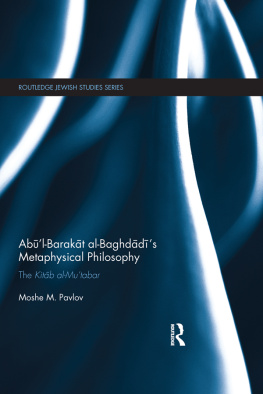Conee Earl Brink - Riddles of Existence: A Guided Tour of Metaphysics: New Edition
Here you can read online Conee Earl Brink - Riddles of Existence: A Guided Tour of Metaphysics: New Edition full text of the book (entire story) in english for free. Download pdf and epub, get meaning, cover and reviews about this ebook. year: 2014, publisher: Oxford University Press;Clarendon Press ; New York, genre: Religion. Description of the work, (preface) as well as reviews are available. Best literature library LitArk.com created for fans of good reading and offers a wide selection of genres:
Romance novel
Science fiction
Adventure
Detective
Science
History
Home and family
Prose
Art
Politics
Computer
Non-fiction
Religion
Business
Children
Humor
Choose a favorite category and find really read worthwhile books. Enjoy immersion in the world of imagination, feel the emotions of the characters or learn something new for yourself, make an fascinating discovery.
- Book:Riddles of Existence: A Guided Tour of Metaphysics: New Edition
- Author:
- Publisher:Oxford University Press;Clarendon Press ; New York
- Genre:
- Year:2014
- Rating:4 / 5
- Favourites:Add to favourites
- Your mark:
Riddles of Existence: A Guided Tour of Metaphysics: New Edition: summary, description and annotation
We offer to read an annotation, description, summary or preface (depends on what the author of the book "Riddles of Existence: A Guided Tour of Metaphysics: New Edition" wrote himself). If you haven't found the necessary information about the book — write in the comments, we will try to find it.
Earl Conee and Theodore Sider offer a lucid discussion of the major topics in metaphysics. What makes me the same person I was as a child? Is everything fated to be exactly as it is? Does time flow? How fast does it flow, and can one travel back in time, against the current? Does God exist? Why is there anything at all rather than nothing? If our actions are caused by things science can predict and control, how can we have free will? The authors approach these topics in an open-minded and non-dogmatic manner, giving students a full sense of the issues involved
Conee Earl Brink: author's other books
Who wrote Riddles of Existence: A Guided Tour of Metaphysics: New Edition? Find out the surname, the name of the author of the book and a list of all author's works by series.

